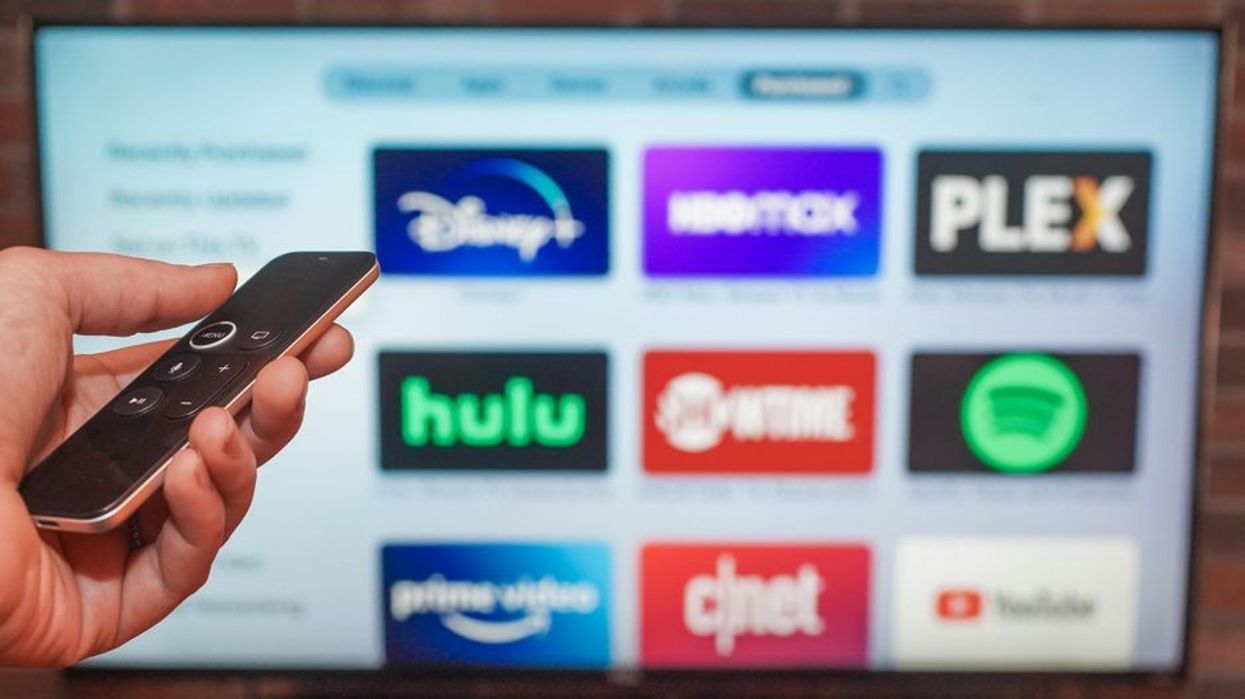Are We All Just Content Creators Now?
I went to film school because I wanted to see my name in lights. Now it's online.

What was the first experience that made you want to work in Hollywood? For me, it was watching movies in theaters as a kid and using my parents' camcorder to tell my own stories when I got back home. Those trips to the theater inspired me to watch my own stuff on the big screen.
I had the first opportunity to do that when I was in college, working at The State Theatre. I made friends with the projectionist who used to let me put my short films up there between movies. Those movies sucked, but they let me fulfill a dream and propelled me to Hollywood, where my next big-screen experience would be at SXSW. I saw my movie, Shovel Buddies, debut for a thousand people.
It was a dream come true.
But that movie didn't stay in theaters. In fact, that was the last time it showed in one.
AwesomenessTV released it online to modest results, and now if you want to watch it, you have to rent it on Amazon or iTunes. I thought that made me less of a filmmaker for a long time. And I was worried that when studios looked at me, they didn't see a writer with a movie that got made; they saw someone who produced something that didn't deserve to go to theaters.
Then the HBO Max announcement came around, and I saw many famous filmmakers faced with something I saw a few years ago. This obviously had much larger ramifications than it did for me, but it pushed a question to the forefront of my mind...
With streamers taking over the world and theaters suffering, are we all just content creators now?
Are We All Just Content Creators Now?
When I sit down to write, I still imagine the movie being released in theaters. But the more and more meetings I take, the more I hear the same refrain, "We want to see stuff made, and we're not worried about where it's released."
The fact of the matter is, sure, studios are still going to make movies they put into theaters, but unless you're working on huge IP or another kind of tentpole, most things are probably going to streamers. Producers will get their cut to make it, and streamers need content to stay competitive with one another.
This feels like it's good news.
There will be more jobs, hopefully. It means more genres will be viable, and the content will always be needed. But for some reason, it does not feel great. It feels like the list of people who get to see their names in lights will be smaller and smaller.
It feels like a shift into being content creators and not filmmakers.
This might just seem like a title for you, but as these large corporations take over, the quality of the stuff we make is going to change. Places like HBO Max will have a budget beholden to AT&T, and they'll want everything done cheaply. That means if you are a tentpole movie that gets shifted, they may want you to take out the expensive scenes to save cost. Or they may want you to do everything digitally... without a real finishing polish because it's cheaper than practical.
A lot of these decisions will be taken away from artists.
So while we may have more, most of it will be crap.
I think there are certainly different ways to look at this. The less pessimistic one is this: Soderbergh's new HBO Max movie, Let Them All Talk, may never have been made if it wasn't done on the cheap. That's a great film with impressive stars, but niche enough to not have a high ceiling.
And if you look at things like Greyhound or even The Old Guard, they thrive on their respective sites because they are marquee releases with stars that are cinematic home adventures. It could be that these content sites get driven by quality.
But it's hard to tell—because they will always want and need more.
There are many sides to this argument and this ordeal. I also think the line between movies and TV continues to blur. We're seeing it with all the tweets surrounding The Irishman's runtime and how Tarantino broke Hateful Eight into episodes for Netflix.
If most things exist online only, I wonder how much this line skews in the future. Will your act breaks have to be more defined, so Peacock can throw in commercials? Will Netflix ask for an insane opening scene to hook people past two minutes, when they measure their watch number?
And how much more will stars matter?
Famous faces are some of the biggest indicators of what people click on, so in this new content world, do writers and directors even matter? You just need stars. And how will those stars get bonuses? If not tacked onto box office receipts, it has to be tacked onto clicks... if it's even tacked on at all.

As you can see, this "content" question has a ripple effect throughout the entire industry. I would love to get the NFS point of view here. As the industry shifts, how do you view yourself? Are most of us just going to work as content creators?
Let me know what you think in the comments.
And good luck in 2021. We're seeing it all change right before our eyes.
Still feeling nostalgic about 2020? Then check out the rest of our Year in Review 2020 coverage for more of our top picks, industry trends, and end-of-year takes.













